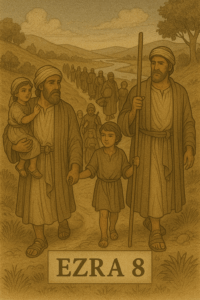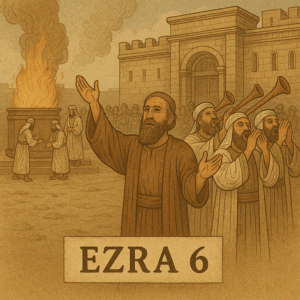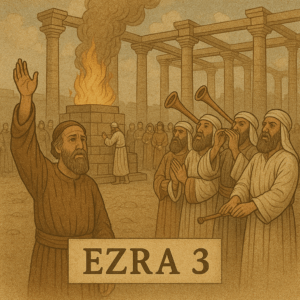Judges Chapter 19 is one of the most harrowing and somber chapters in the Bible, depicting a narrative of moral decay, violence, and tragedy. This chapter tells the story of a Levite and his concubine, whose journey leads to horrific events in the town of Gibeah, highlighting the chaos and lawlessness that characterized Israel during the time of the Judges.
The Levite and his concubine.
The chapter begins with a Levite living in the remote hill country of Ephraim who takes a concubine from Bethlehem in Judah. After a falling out, the concubine returns to her father’s house in Bethlehem. Four months later, the Levite goes to Bethlehem to speak kindly to her and bring her back. The concubine’s father welcomes him warmly, and they spend several days feasting before the Levite decides to leave with his concubine.
The fateful stop in Gibeah.
On their journey back, the Levite, his servant, and the concubine pass by the town of Jebus (later known as Jerusalem) but decide not to stay there because it is a foreign city. Instead, they press on to Gibeah in the territory of Benjamin, expecting hospitality from their fellow Israelites. However, upon arriving in Gibeah, no one offers them shelter, and they end up waiting in the town square.
An old man from the hill country of Ephraim, living in Gibeah, finds them in the square and invites them to stay in his home, warning them not to spend the night in the open square. This act of hospitality becomes a stark contrast to what follows.
The atrocity in Gibeah.
That night, wicked men from the town surround the old man’s house and demand to have relations with the Levite. In a desperate attempt to protect his guest, the old man offers his virgin daughter and the Levite’s concubine instead. The Levite sends his concubine out to them, and she is brutally abused throughout the night. At dawn, she collapses at the doorstep of the house.
The next morning, the Levite finds his concubine lying at the door. He tells her to get up, but there is no response. Realizing she is dead, he places her body on his donkey and returns home. In an act of outrage and to call Israel to action, he cuts her body into twelve pieces and sends them throughout the territories of Israel.
Theological reflections.
Judges Chapter 19 is a stark reminder of the depth of moral decay that can occur when there is no king or central authority, and when “everyone did what was right in his own eyes” (Judges 21:25). The events in Gibeah mirror the wickedness of Sodom in Genesis, showing that the people of Israel had descended into similar depravity. This chapter challenges readers to reflect on the importance of justice, righteousness, and the consequences of abandoning God’s laws.
The impact of Judges chapter 19.
The story of the Levite and his concubine in Judges Chapter 19 serves as a prelude to a larger conflict that will unfold in subsequent chapters, leading to civil war and further devastation in Israel. It highlights the need for spiritual renewal and adherence to God’s commandments and serves as a sobering warning about the consequences of unchecked sin and lawlessness.




